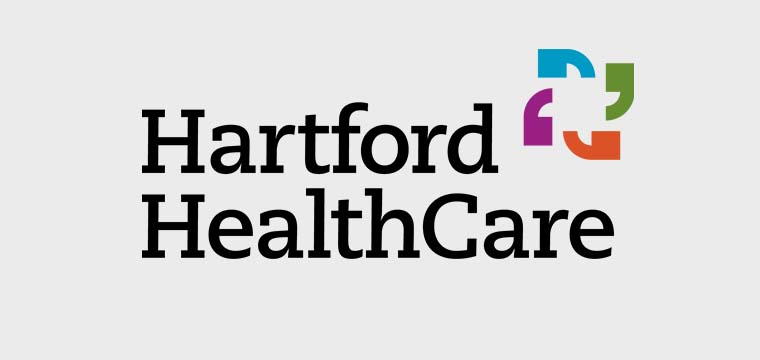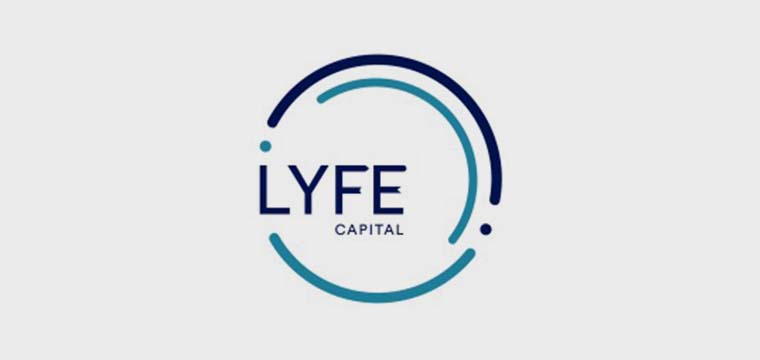Neurona Therapeutics is driven by rigorous scientific discovery and focused on developing breakthrough treatments for neurological disorders.
Neurona Therapeutics is a privately-held, clinical-stage biotherapeutics company focused on discovering and developing allogeneic neural cell therapies to treat chronic diseases of the nervous system. Neurona was founded by leading-edge neuroscientists and stem cell pioneers at the University of California, San Francisco. Based on nearly two decades of research, we believe that specific neural cell lineages have the unique ability to integrate and repair dysregulated neural circuits. We have built a robust regenerative medicine discovery platform and developed proprietary methods to manufacture specific types of fully-differentiated neuronal, glial, and gene-edited cell therapy candidates for targeted delivery into the damaged nervous system. Product manufacturing is performed in Neurona’s cGMP facility. Our motivated and talented team of innovators is working to advance first-in-class cell therapy treatments for patients with significant unmet medical needs.
Mission
Creating safe and effective cell therapies for chronic disorders of the nervous system through rigorous science, collaborative innovation, and groundbreaking regenerative technology.
Vision
Setting the standard for restorative cell therapies that improve quality of life and revolutionize medical treatment for those living with chronic disorders of the nervous system.
Leadership Team
Neurona is founded by world-class researchers at the forefront of neural stem cell biology. We have built an outstanding team of scientists and experienced drug developers who work tirelessly to advance cell-based medicines.
Management
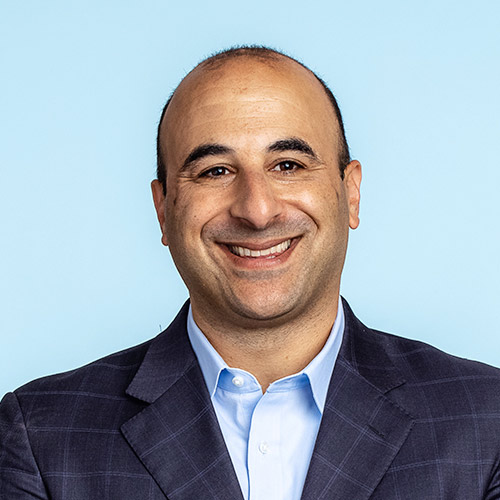
Cory R. Nicholas, PhD
Co-Founder and Chief Executive Officer
Dr. Cory Nicholas is a Founder and the Chief Executive Officer at Neurona Therapeutics. Before Neurona, he was a faculty member in the Department of Neurology at the University of California, San Francisco where he investigated human cortical interneuron development. Cory pioneered methods to derive interneuron precursors from human pluripotent stem cells, and he evaluated the therapeutic potential of interneuron cell therapy in multiple preclinical models of neurological disease. Cory’s post-doctoral work was conducted at UCSF. His pre-doctoral research at both UCSF and Stanford University studied germline stem cells and gametogenesis. He received his Bachelor’s degree from the University of California, Berkeley.

Catherine Priest, PhD
Chief Development Officer
Dr. Catherine Priest is the Chief Development Officer at Neurona Therapeutics. Catherine was most recently the Vice President of Preclinical Development at Neurona. Prior to Neurona, she was a Senior Science Officer at the California Institute for Regenerative Medicine (CIRM), where she managed a grant portfolio of Translational and Clinical programs. Previously, Dr. Priest led the preclinical cellular therapeutics group at Geron Corporation, working on treatments for spinal cord injury, cardiovascular disease, and diabetes. During that time, the company developed the first successful IND application for an embryonic stem cell-derived cellular therapeutic that was approved by the FDA for use in a clinical trial. Dr. Priest also managed a research group at Bayer Biotechnology and was an Assistant Professor at the University of Maryland School of Medicine, where her lab focused on neuroendocrine modulation of behavior and neural circuitry. Dr. Priest received a Bachelor’s degree in Biology and Psychology from Kalamazoo College in Michigan, and a Ph.D. in Neuroanatomy and Cell Biology from the UCLA School of Medicine. She did postdoctoral training at Rockefeller University and Mt. Sinai Medical School.

Gautam Banik, PhD
Chief Technology Officer
Dr. Gautam Banik is the Chief Technology Officer at Neurona Therapeutics. Previously, Gautam was the Vice President of Manufacturing and Process Sciences at Neurona Therapeutics. Prior to joining Neurona he was Vice President of Manufacturing and Process Sciences at Cellerant Therapeutics where he developed a myeloid progenitor stem cell product derived from adult donors for the treatment of neutropenia in acute myelogenous leukemia and acute radiation syndrome. Gautam also developed an antibody drug conjugate product for the treatment of AML for early phase clinical studies. Prior to Cellerant, he worked in the Process Sciences group at Cell Genesys from 1997 to 2008. During this period, he held a number of positions with increasing responsibility including leading the development of manufacturing processes and scale up to commercial scale for cell therapy products such as GVAX immunotherapy. He also worked on a number of gene therapy and viral vector products. He conducted his post-doctoral research in Biochemical Engineering at the University of Colorado at Boulder and received his Ph.D. in Engineering Sciences from Dartmouth College.

James Stutz
Chief Financial Officer and Chief Business Officer
Mr. James Stutz is the Chief Financial Officer (CFO) & Chief Business Officer (CBO) at Neurona Therapeutics. He has 20 years of experience in the biopharma industry across multiple operating roles in private and public biotech companies as well as in venture capital investment, and management consulting. Prior to joining Neurona, James served as CBO at Actym Therapeutics, a private company developing microbial cell therapies designed to overcome the tumor microenvironment, and prior to that as head of business development at Instil Bio, a global public, clinical stage, cell therapy company developing tumor infiltrating lymphocytes for the treatment of cancer. Before joining Instil Bio, he was the CFO at Tolerion, and CBO at Tioma Therapeutics. Earlier in his career he held roles of increasing responsibility at InterMune, CoMentis, and Alios BioPharma (acquired by Janssen Pharmaceutical Companies of Johnson & Johnson). Prior to holding operating roles in biopharma companies, James was a principal with Essex Woodlands Health Ventures where he focused on investments in the biopharma and life sciences tools space including ProteinSimple (acquired by Bio-Techne), Revance Therapeutics, IntegenX (acquired by Thermo Fisher Scientific) and Symphogen (acquired by Servier). He was also a senior consultant with Strategic Decisions Group and prior to his career in the life science industry was a commissioned officer in the United States Air Force. James earned an MBA from the Tuck School of Business at Dartmouth and a B.A. in business economics, from the University of California at Santa Barbara. From 2012 through 2017 James held an appointment as Lecturer at Stanford University in the Department of Medicine, Division of Clinical Pharmacology in the School of Medicine.
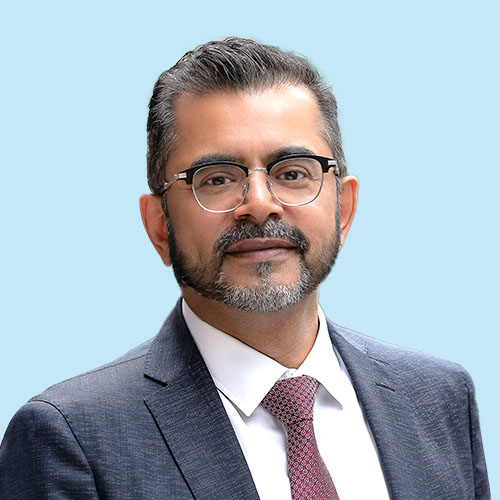
Manher “AJ” Joshi, MD
Chief Medical Officer
Dr. Manher “AJ” Joshi is the Chief Medical Officer at Neurona Therapeutics. He brings over 20 yrs of clinical development and commercialization experience for biologics and cell and gene therapies in neurology, oncology, autoimmune and ultra-rare diseases. Prior to Neurona, he was Executive Vice President and CMO, Head of Clinical Development at Atara Biotherapeutics where he led the development team to the first ever approval of an allogeneic T-cell immunotherapy. Previously, AJ held senior leadership roles spanning development, medical affairs, corporate strategy and biotech investment at Allergan, Hunt Bioventures, Synageva and Genzyme. AJ received his B.A .and M.D. from Boston University, and completed his internal medicine residency at Yale University.
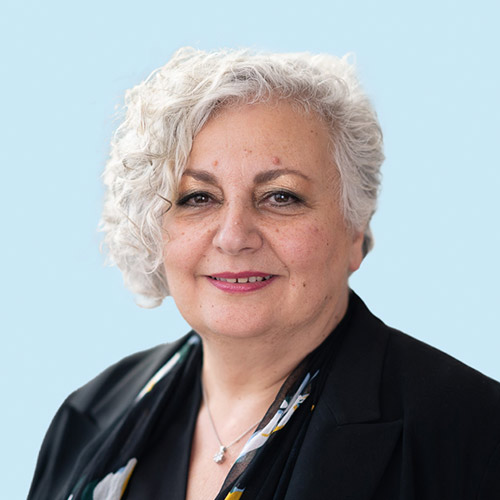
Nadia Agopyan, PhD, RAC
Senior Vice President of Regulatory Affairs
Dr. Nadia Agopyan is the Senior Vice President of Regulatory Affairs at Neurona Therapeutics. She has over 20 years of experience in strategic global regulatory affairs and has held senior leadership positions at leading biotechnology and pharmaceuticals companies including companies focused on the development of cellular therapies. Prior to joining Neurona, Nadia was Senior Vice-President Regulatory Affairs at Marker Therapeutics, Inc., a public company focused on the development of next-generation T cell-based immunotherapies for patients with hematologic and solid tumors. Before joining Marker, she served as Director of Regulatory Affairs at Kite Pharma, Inc., a subsidiary of Gilead Sciences, where she led the global regulatory development of cellular therapies such as YESCARTA® autologous anti-CD19 CAR T cell products for the treatment of relapsed or refractory non-Hodgkin lymphomas. Nadia was responsible for the regulatory oversight of clinical programs from Phase 1 – 4 development and all operational aspects of global regulatory submissions including the filing of YESCARTA global marketing authorizations, as well as applications for various label expansions. Previously, she was Global Regulatory Lead at Baxter Biosciences, where she defined global regulatory strategies for new products in its hemophilia franchise and filed VONVENDI®, the recombinant von Willebrand factor, Senior Director Regulatory Affairs at Ambit Biosciences and Director, Regulatory Affairs at Cougar Biotechnology. Prior to joining industry, Nadia had a successful academic career in neurophysiology, investigating molecular mechanisms underlying cognitive deficits in neurodegenerative diseases and the electrophysiological properties of neural structures in CNS diseases including epilepsy. Nadia received her B.Sc. and Ph.D. in physiology and neurophysiology respectively, from McGill University in Montreal, Canada.

Alexis van Lingen
Vice President of Quality
Alexis van Lingen is the Vice President of Quality at Neurona Therapeutics, bringing over 25 years of industry experience in Quality and Manufacturing, including two decades in leadership roles. Her expertise spans plasma products, medical devices, monoclonal antibodies, and cell and gene therapies.
Prior to joining Neurona, Alexis served as VP of Quality at Nkarta, Inc., a company advancing natural killer (NK) cell therapies for autoimmune diseases and cancer. Before that, she was Head of Quality at Lonza, overseeing a CDMO site dedicated to clinical development of monoclonal antibodies. Her earlier roles include Head of Quality at Baxter’s Hayward and Irvine facilities, Compliance Excellence Director at Baxter Los Angeles, and Quality Operations Director at Baxter Canada.
Alexis began her career at Baxter BioScience, where she held roles of increasing responsibility. Known not only for her deep commitment to quality but also for her collaborative leadership, Alexis is recognized for fostering high-performing teams and delivering exceptional results.
She holds an MBA from the USC Marshall School of Business and a bachelor’s degree in mathematics from the University of Southern California.
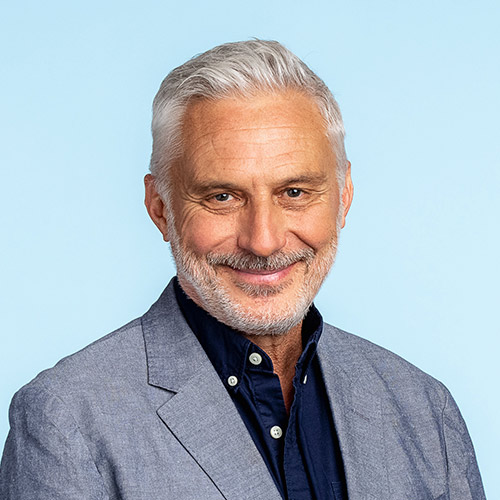
Alessandro Bulfone, MD
Vice President of Operations
Dr. Alessandro Bulfone is the Vice Presiden of Operations at Neurona Therapeutics where he leads all operational functions for the planning, prioritization, and execution of the company’s research and development programs. Most recently, Alessandro was head of the Biomedicine Department at CRS4 in Italy, an interdisciplinary research center focused on applying state-of-the-art computational and genomic technologies in large collaborative biomedical research projects. Previously, while leading an early-stage start-up company, he contributed to the identification and early development of putative molecular biomarkers in neuro-oncology and autoimmune diseases. In his prior career as an independent research investigator, he managed research projects at Hospital San Raffaele and Telethon Institute of Genetics and Medicine in Milan (Italy), focused on the characterization of genes involved in early forebrain development. Alessandro earned his M.D. and completed his residency in Neurology at the University of Turin, Italy. He completed his post-doctoral training in the Department of Psychiatry at the University of California, San Francisco, contributing to the early discoveries being studied further at Neurona Therapeutics.

Agape Eleftheriadis
Vice President of Human Resources
Agape Eleftheriadis is the Vice President of Human Resources at Neurona Therapeutics. She joined the company in 2024, bringing over two decades of leadership experience in the medical device and high-tech industries. Agape was most recently the Vice President of People & Culture at Aerospike, where she led strategic initiatives in talent acquisition, organizational effectiveness, and cultural transformation to support the company’s rapid expansion. Prior to Aerospike, she held senior HR leadership roles at SI-BONE, Inc. and other innovative organizations, where she successfully guided teams through pivotal milestones including IPOs, mergers and acquisitions, and global growth. Throughout her career, Agape has built and led high-performing HR teams in both startup and global environments. She is known for her ability to partner strategically with business leaders, foster inclusive and engaging workplace cultures, and champion leadership development and employee engagement. Agape received a Bachelor of Arts in Linguistics from Northeastern Illinois University. She actively mentors first-generation college students, reflecting her commitment to professional development and community engagement. Her work continues to be driven by a strong sense of purpose and the belief that people are the foundation of every organization’s success.

Sheri Madrid
Vice President of Clinical Operations and Development
Sheri Madrid is VP of Clinical Operations and Development at Neurona Therapeutics. Prior to joining Neurona, Sheri was a clinical development consultant offering broad clinical trial support for the development of drugs, biologics and medical devices. Prior to that she served as Executive Director, Clinical Operations at Advanced Clinical, a clinical development organization that provides global services including broad clinical consulting solutions for pharmaceutical, biopharmaceutical, biotechnology, and medical device organizations. For over 26 years, she has led global clinical teams in both start up and corporate environments in multiple therapeutic areas, including interventional neuroradiology, cardiology, oncology, rare diseases and endocrinology. Sheri is recognized for her expertise in clinical trial strategy and management, process improvement and workforce planning. She is passionate about clinical research and identifying treatments that improve the lives of patients. Sheri graduated from the University of California, Irvine with a B.S. in Biology and B.A. in Social Ecology.
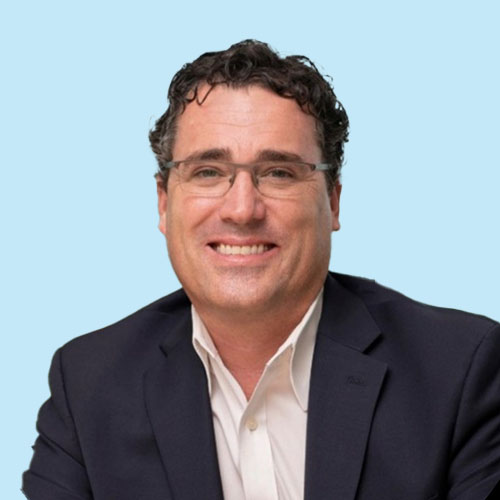
John Hixson, MD
Vice President of Clinical Development
Dr. John Hixson is the Vice President of Clinical Development at Neurona Therapeutics. He has over 20 years of experience in the treatment of epilepsy and in research into therapies and tools to help people with epilepsy manage their condition. Prior to joining Neurona, John was Chief Medical Officer at Nile AI, Inc., a digital health company focused on using data science to improve epilepsy care for patients and their families. Dr. Hixson continues to see patients as a neurologist and epilepsy specialist at the Epilepsy Center of Excellence at the SF Veterans Affairs Medical Center, and is also a Professor at the University of California San Francisco. John received his M.D. degree from The Johns Hopkins School of Medicine, completed his residency in neurology at the University of Pennsylvania, and finished a fellowship in epilepsy and clinical neurophysiology at the University of Iowa.
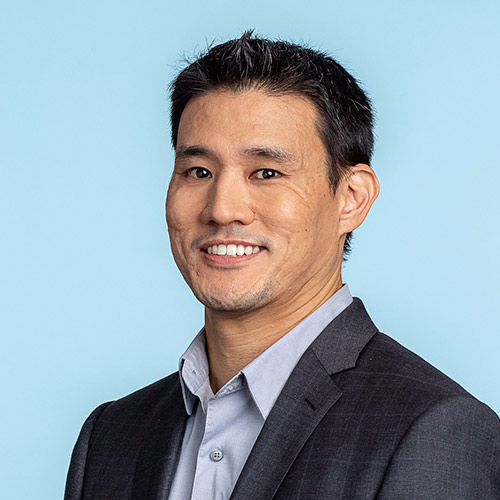
James Tanaka
Senior Director of Finance
James Tanaka is the Director of Finance at Neurona Therapeutics. Prior to joining Neurona, he worked at Cord Blood Registry, a family cord blood stem cell banking company. While at Cord Blood Registry, James held a number of positions with increasing responsibilities, building the accounting & finance team, and the accounts receivable & billing team. He also assisted with the sale of the company to a private equity firm in 2012. James received his B.S. in Business Administration from California Polytechnic State University, San Luis Obispo, and holds a CPA license.
Board of Directors
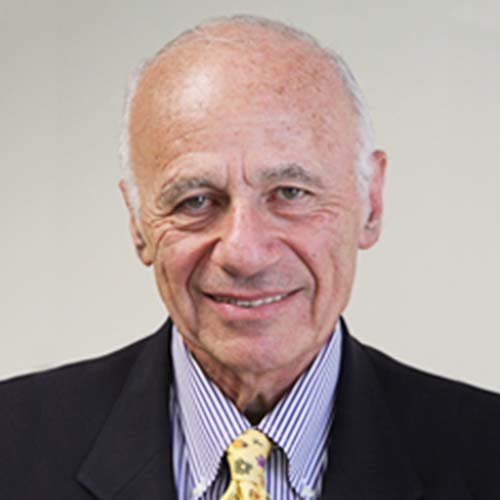
Leo Guthart, PhD
Managing Partner, Topspin Partners
Dr. Leo A. Guthart currently manages Topspin Partners, a venture capital fund and Topspin Partners LBO, a buyout fund. The funds are both based on Long Island and invest approximately $600 million with principal focus in the venture area on biotechnology, computer security and rechargeable batteries for electric vehicles. Dr. Guthart served as a Director of Aragon Pharmaceuticals (sold to Johnson & Johnson) and Seragon Pharmaceuticals (sold to Roche-Genentech). He is presently a Director of Peloton Pharmaceuticals. Dr. Guthart was Chairman of the Board of Trustees of Hofstra University from 1993-1996, and is currently a member of the Hofstra Board of Trustees. He serves as Treasurer of Cold Spring Harbor Laboratory and is a member of its Executive Committee, an Overseer of the Hofstra-NSLIJ Medical School and a Trustee Emeritus of the Stony Brook Foundation. He was inducted into the Long Island Technology Hall of Fame. He was a Founding Director of the Long Island Research Institute and was a Trustee of the Acorn Funds, a leading growth-oriented family of mutual funds. He is a Director of AptarGroup, Inc. (NYSE), an international producer of dispensing valves, pumps and closures for pharmaceuticals and perfumes. He served as Chairman of the Security and Fire Solutions Group of Honeywell International. Until its sale to Honeywell in 2000, he served as Vice Chairman of Pittway Corporation and Chief Executive Officer of its Security Group of Companies. He also served as Chairman of Cylink Corporation for many years. Cylink was the first to offer electronic public key encryption to the commercial market. Dr. Guthart is a graduate of Harvard College where he received a B.A. degree in Physics and of Harvard Business School where he was a George F. Baker Scholar and received both an M.B.A. and a Doctorate in Business Administration with a specialty in Corporate Finance. Dr. Guthart served on the faculty of Harvard Business School and was a Ford Foundation Fellow performing research on corporate share repurchases. His articles on share repurchases have been published in the Harvard Business Review, the Financial Analysts Journal and the Journal of Finance.

Ray Kelleher, MD, PhD
Raymond J. Kelleher is managing director at Cormorant Asset Management, where he invests in public and private companies across all therapeutic areas. In addition to Neurona Therapeutics, he represents Cormorant on the boards of Axonis Therapeutics, BiVACOR, Bridgebio Oncology Therapeutics, Expansion Therapeutics, Garuda Therapeutics, GC Therapeutics, Kamau Therapeutics, Rapport Therapeutics and Triveni Therapeutics as director, and Chroma Therapeutics, Interius BioTherapeutics and Umoja Biopharma as observer.
Ray is also an attending neurologist at Massachusetts General Hospital, where he maintains a clinical practice focused on memory disorders and dementia. His research has made important contributions to understanding the molecular and cellular basis of neurological disease. His work has been published in Cell, Nature, Neuron and elsewhere, and his research has received numerous national honors, including the Pew Scholars Award in the Biomedical Sciences, the John Merck Scholars Award and the NIH Independent Scientist Award.
Ray completed B.S. degrees in biology and literature at MIT, an A.M. in French at Harvard University, and an M.D. and a Ph.D. in cell biology through the Medical Scientist Training Program at Stanford University. His Ph.D. research with Nobel Laureate Roger Kornberg at Stanford resulted in discovery of the Mediator complex responsible for transcriptional activation, and his postdoctoral research with Nobel Laureate Susumu Tonegawa at MIT identified a key role for translational control in memory formation. He completed his clinical training at MGH and Harvard Medical School.
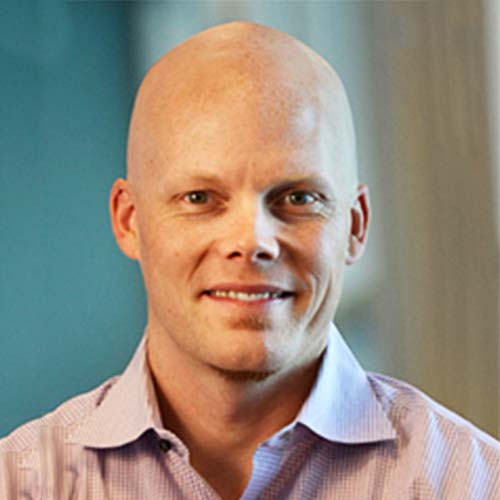
Tim Kutzkey, PhD
Managing Partner, The Column Group
Dr. Tim Kutzkey serves as Chairman on Neurona’s Board of Directors. He is currently a Managing Partner at The Column Group (TCG). Since joining TCG in 2007, Dr. Kutzkey has contributed to the conception, formation, and management of many of the firm’s portfolio companies. In addition to Neurona, he is currently a Board Director of Peloton Therapeutics, a company he launched in 2010 as the President and CEO. Dr. Kutzkey also serves on the Board of Directors of Surrozen, Nura Bio, Carmot Therapuetics, Kallyope, Plexium, Synthekine and Cajal Neuroscience. Dr. Kutzkey was formerly a scientist at KAI Pharmaceuticals, focused on the discovery and development of selective protein kinase C inhibitors. Prior to KAI, he worked at UC Berkeley as a graduate student and postdoctoral scholar in the lab of Dr. Robert Tjian, completing his Ph.D. in molecular and cell biology in 2005. Dr. Kutzkey was previously educated at Stanford University.
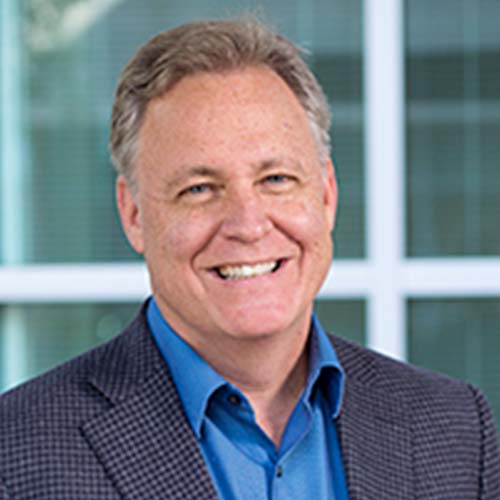
Brad Margus
Co-Founder and Chief Executive Officer of Cerevance
Brad Margus is a co-founder of Cerevance, a company advancing treatments for brain diseases where he was CEO from inception in 2016 until moving into the Board Chair role in 2023. The company's lead program, CVN424, was effective in a Ph 2 study for Parkinson’s Disease. From 2009 to 2012, as co-founder and CEO of Envoy Therapeutics, Mr. Margus led the discovery of therapeutics for brain diseases and sold the company to Takeda Pharmaceuticals. From 2000 to 2007, Mr. Margus was co-founder and CEO of Perlegen Sciences, a leader in analyzing genetic variation. Mr. Margus has been a member of numerous government advisory committees as well as corporate and nonprofit boards. He founded and leads the A-T Children’s Project, a non-profit that funds research on a rare disease - ataxia telangiectasia or “A-T” - that two of his sons have. He also currently serves on the boards of hC Bioscience, a tRNA company, and Tactile Therapeutics, a targeted protein degrader company. In addition, he serves as Co-chair of the Network for Excellence in Neuroscience Clinical Trials External Oversight Board at the NIH. Mr. Margus obtained his M.B.A. from Harvard Business School.

Cory R. Nicholas, PhD
Co-Founder and Chief Executive Officer
Dr. Cory Nicholas is a Founder and the Chief Executive Officer at Neurona Therapeutics. Before Neurona, he was a faculty member in the Department of Neurology at the University of California, San Francisco where he investigated human cortical interneuron stem cells and development. Cory pioneered methods to derive interneuron precursors from human pluripotent stem cells for transplantation into multiple animal models of neurological disease. Cory’s post-doctoral work was conducted at UCSF. His pre-doctoral research at both UCSF and Stanford University studied germ cell development. He received his Bachelor’s degree from the University of California, Berkeley.

Peter Svennilson
Peter Svennilson founded The Column Group in 2007 and has worked in venture capital and finance for over 35 years. He was the Chairman of Aragon Pharmaceuticals from startup until it was sold to Johnson & Johnson in 2013 and was the Chairman of Seragon Pharmaceuticals until it was sold to Genentech/Roche in 2014.
Mr. Svennilson has been a Board Director of biotech companies such as: NGM (“NGM”), Constellation (“CNST”), Revolution Medicine (“RVMD”), RAPT (“RAPT”), ORIC (“ORIC”), Immune Design (“IMDZ”), Rosetta (“RSTA”), PTC (“PTCT”), Chemocentryx (“CCXI”), Tercica (“TRCA”) and Somalogic (“SLGC”). He was also a Board Observer of Arcus (“RCUS”).
Prior to TCG, he was the Founder and Managing Partner of Three Crowns Capital where he helped found and/or finance large parts of the venture capital for biotech companies such as: Tularik (“TLRK”), Rosetta (“RSTA”), PTC (“PTCT”), Chemocentryx (“CCXI”), Rinat, Tercica (“TRCA”), Somalogic (“SLGC”), Infinity (“INFI”) and Fiveprime (“FPRX”).
Prior to Three Crowns Capital, he was the Associate Managing Director in charge of European Investment Banking Origination for Nomura in Europe.
Mr. Svennilson is a Trustee at The Institute for Advanced Study in Princeton. He received an MBA from the Stockholm School of Economics with further studies at the MBA programs at INSEAD in Fontainebleau and London Business School.
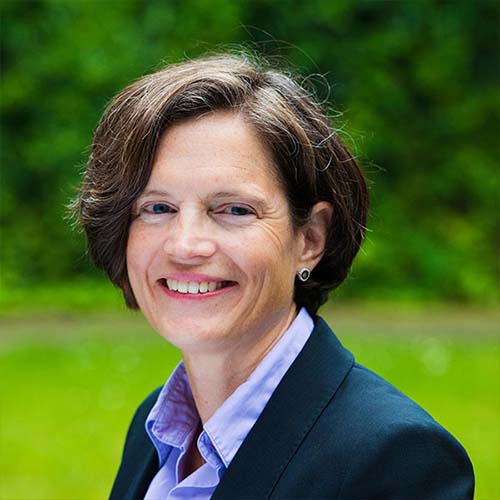
Erica Whittaker, PhD
VP and Head of UCB Ventures
Dr. Erica Whittaker is Vice President & Head of UCB Ventures, a €150 million strategic corporate venture fund which was set up to invest in innovative, longer term and higher risk therapeutic and digital health opportunities beyond UCB’s current focus areas. She is a Board Director for four of UCB Ventures’ portfolio companies. Erica began her career at UCB in 2010 as VP Strategy & Partnering, Research. In 2012, she became a member of an internal strategy team which shaped UCB’s Patient Value Strategy that is being implemented today. As Head of Market Access EMEA 2013-2017, Dr. Whittaker was instrumental in developing regional patient access and pricing strategies and working with affiliates to drive local execution. Prior to UCB, she spent 10 years as a top-ranked biotechnology equity analyst for Merrill Lynch in London (1999-2009). Dr. Whittaker attended Brown University (Rhode Island, USA) where she received BA degrees in Biology and in Comparative Literature. She travelled to the UK on a Marshall Scholarship and obtained a Ph.D. in Molecular Biology from the University of Edinburgh, and later an M.B.A. from Heriot-Watt University Business School in Edinburgh.
Scientific Advisors
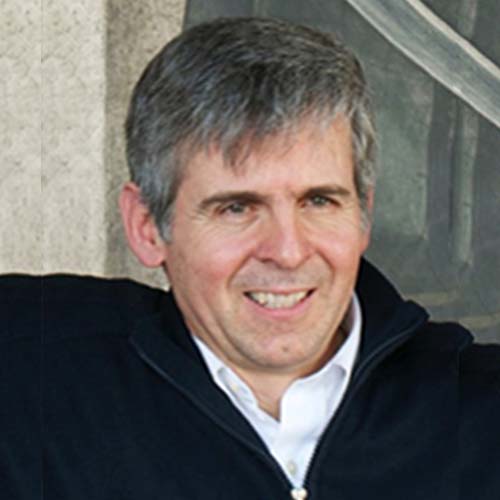
Arturo Álvarez-Buylla, PhD
Professor of Neurological Surgery, UC San Francisco
Dr. Arturo Álvarez-Buylla is a Professor in the Department of Neurological Surgery at the University of California, San Francisco, where he also serves as the Heather and Melanie Muss Endowed Chair and Principal Investigator in the Brain Tumor Research Center. Dr. Álvarez-Buylla’s research specializes in developmental neuroscience and stem cell neurobiology with special interests in neurogenesis in the adult mammalian brain, the assembly of the brain circuits, origin of brain tumors, and interneuron transplantation. His research identified the neural stem cells in the adult brain, their origin in the embryo, long-range neuronal migration in the postnatal brain and new mechanisms of neuronal translocation. His laboratory also identified the medial ganglionic eminence (MGE) as a source of young neurons that after transplantation can migrate and integrate in the postnatal and adult brain. In collaboration with other groups at UCSF, his laboratory has shown that MGE cells can induce new periods of brain plasticity, ameliorate epileptic seizures and increase pain thresholds. An ongoing interest of the Álvarez-Buylla Lab is understanding how adult neural stem cells are regulated, studying how cells derived from these progenitor cells integrate into the adult brain and which populations of MGE-derived neurons can be used therapeutically. Dr. Álvarez-Buylla joined the UCSF faculty in 2000. Prior to that he was head of lab at Rockefeller University. Dr. Álvarez-Buylla obtained his Ph.D. degree at Rockefeller University in 1988 and a Bachelor’s degree in Biomedical Research at the Universidad Nacional Autónoma de México (Mexico City, Mexico) in 1983. Dr. Álvarez-Buylla has received numerous awards including the Robert L. Sinsheimer Award in Molecular Biology, the Jacob Javits Award and the Prince of Asturias Award for Technical and Scientific Research.
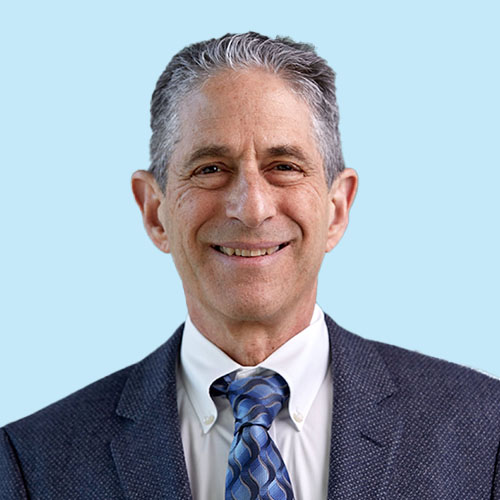
David Blum, MD
Senior Medical Advisor
Dr. David Blum is a Senior Medical Advisor to Neurona Therapeutics having previously served as Chief Medical Officer at the Company. David has worked in clinical development positions in the pharmaceutical industry for over 20 years, and has, as medical project leader, secured four NDA or sNDA approvals as well as approvals in EU and Canada. He previously served as senior medical director at GSK, and as Head of Neurology Clinical Research at Sunovion Pharmaceuticals. Prior to working in the pharmaceutical industry, David was in clinical practice as a neurologist at the Barrow Neurological Institute in Arizona for 10 years, where he was director of the epilepsy program. He has authored or co-authored over 50 full-length papers in neurology-related areas. He received his M.D. from the University of California at San Diego and completed neurology residency and neurophysiology fellowship at the University of California at Los Angeles.
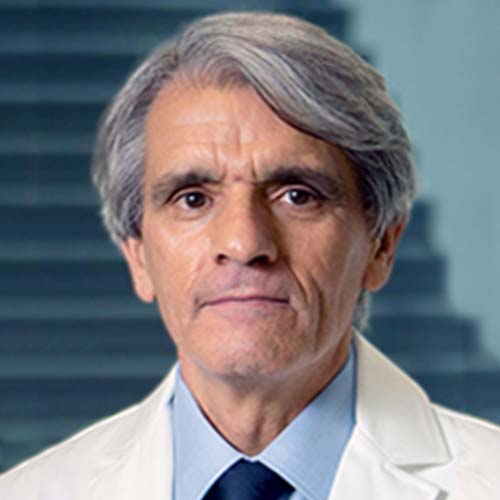
Stephen Hauser, MD
Professor of Neurology, UC San Francisco, Director, UCSF Weill Institute for Neurosciences
Stephen L. Hauser, M.D. is the Robert A. Fishman Distinguished Professor and Chair of the Department of Neurology at the University of California, San Francisco. A neuroimmunologist, Dr. Hauser’s research has advanced our understanding of the genetic basis, immune mechanisms, and treatment of multiple sclerosis. Dr. Hauser is a fellow of the American Academy of Arts and Sciences and the American Academy of Physicians, and is a member of the Institute of Medicine of the National Academy of Sciences (Chair of Committee on Gulf War and Health Outcomes [2009] and Chair of Committee on Long Term Effects of Blast Exposure [2014]). He also serves the Veterans Administration as Chair of the VA Secretary’s Research Advisory Committee on Gulf War Illnesses. He is an editor of the textbook Harrison’s Principles of Internal Medicine, and has served as editor-in-chief of Annals of Neurology (2008-2014). He is a former President of the American Neurological Association and President of the Medical Staff at UCSF. He also serves on several scientific advisory boards for nonprofit organizations. Dr. Hauser has received numerous awards and honors for his work, including the Jacob Javits Neuroscience Investigator Award from the NIH, the John Dystel Prize and the Charcot Award for Multiple Sclerosis Research. In April 2010 Dr. Hauser was appointed by President Obama to the Presidential Commission for the Study of Bioethical Issues charged with advising the President on issues that may emerge from advances in biomedicine and related areas of science and technology. He is a graduate of MIT (Phi Beta Kappa) and Harvard Medical School (Magna Cum Laude). He trained in internal medicine at the New York Hospital–Cornell Medical Center, in neurology at the Massachusetts General Hospital (MGH), and in immunology at Harvard Medical School and the Institute Pasteur in Paris, France, and was a faculty member at Harvard Medical School before moving to UCSF.

Arnold Kriegstein, MD, PhD
Professor of Neurology, UC San Francisco
Dr. Arnold Kriegstein is a member of the Institute of Medicine of the National Academies, and the John Bowes Distinguished Professor in Stem Cell and Tissue Biology and Founding Director of the Eli and Edythe Broad Center of Regeneration Medicine and Stem Cell Research at the University of California, San Francisco. Dr. Kriegstein’s research focuses on how neural stem and progenitor cells in the embryonic brain produce neurons and ways to translate this information for cell-based therapies to treat diseases of the nervous system. His lab found that radial glial cells are neuronal stem cells in the developing brain and also identified a second type of precursor cell produced by radial glial cells responsible for generating specific neuronal subtypes. He has been characterizing the progenitor cells within the developing human brain to determine the genetic profiles of specific progenitor populations, and to explore how these cells contribute to the enormous expansion of neuron number that characterizes the human cerebral cortex. Dr. Kriegstein joined the Neurology Department at UCSF in 2004 and has held academic appointments at Stanford University, Yale University, and Columbia University. He received his B.A. from Yale University and his M.D. and Ph.D. degrees from New York University in 1977 where his thesis advisor was Dr. Eric Kandel. He subsequently completed Residency training in Neurology at the Brigham and Women’s Hospital, Children’s Hospital, and Beth Israel Hospital in Boston. Dr. Kriegstein has received numerous awards including the Stanford University William M. Hume Faculty Scholar and two Javits Awards from the NIH. He was elected to the National Institute of Medicine in 2008.
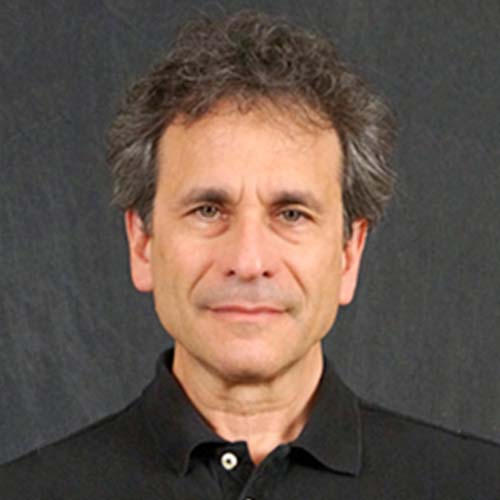
John Rubenstein, MD, PhD
Professor of Psychiatry, UC San Francisco
Dr. John Rubenstein is a Professor in the Department of Psychiatry at the University of California, San Francisco. He also serves as a Nina Ireland Distinguished Professor in Child Psychiatry at the Nina Ireland Laboratory of Developmental Neurobiology. His research focuses on the regulatory genes that orchestrate development of the forebrain. In the mammalian embryo, the forebrain is the portion of the neural tube where primitive cells are organized to form the cerebral cortex, the basal ganglia and other components of the adult brain — the structures of the human brain most involved in key functions such as speech, language, cognition and fine motor skills. Dr. Rubenstein’s lab has demonstrated the role of specific genes in regulating neuronal specification, differentiation, migration and axon growth during embryonic development and on into adulthood. His work aims to elucidate mechanisms underlying human neurodevelopmental disorders such as autism, schizophrenia, epilepsy and mental deficiency. Dr. Rubenstein joined the Psychiatry Department at UCSF in 1991. He received his Ph.D. and M.D. degrees in 1982 and 1986 and completed his medical residency at Stanford University. He obtained his B.S. in Chemistry from Stanford University in 1977. Dr. Rubenstein was elected to the National Institute of Medicine in 2006.






